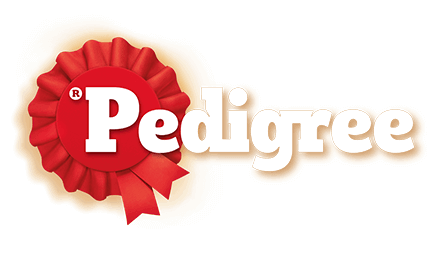Find products that match your dog’s needs

Labradors have been one of the most favourite dog breeds around the world for many decades, and it is not difficult to see why. These loving, loyal, and friendly dogs are great to have as family members. It is highly likely that you have come across at least one Labrador in your life and have secretly wished to have your own. This dog breed is devoted to their parents and will always show love and affection. They make for great family dogs because of their playful and welcoming nature. Labradors can easily bond with all family members and quickly become everyone’s favourite.
Here are some facts you must know about the Labrador dog breed before you bring one home:
Weight | 24 to 36 kg |
Height | 21 to 25 inches |
Lifespan | 11 to 13 years |
Coat | Double coat |
Note: The weight and height mentioned on the table is of a full-grown Labrador and not of a Labrador puppy.
Labradors feature a muscular build with naturally floppy ears that fall on their sides. These adorable doggos have a luscious double coat that can be found in different colours such as:
If you ever come across a fully white-coloured Lab, you have found yourself the rarest Labrador colour in the world. Labradors can also be mistaken for many other dog breeds such as Bassadors, Bernese Mountain Dogs, Corgidor, etc. To ensure that you are bringing a purebred Labrador home, look out for these features:
Cheerful and high-spirited, Labradors will have a lot of energy to spare with you and your family. If you are a family that loves outdoor sports and activities, your Lab will most definitely be an addition to the team. Playing with your Labrador and taking it out for activities like running, swimming, and playing fetch is the perfect way to funnel its energy into something positive. Start taking your Labrador puppy out for such activities and socialise it from a young age. This highly intelligent dog breed is easy to train because they easily pick up on commands and tricks, making your job as a house trainer easier. Labradors also love having a job to do like fetching or retrieving things.
Since the Labrador dog breed is highly intelligent, training these dogs is very easy. Training a Labrador puppy is extremely important so that they do not develop any stubborn habits and register what good behaviour is. Not training your Labrador dog breed puppy can leave room for aggressive behaviour too. Once your pup is 7 weeks old, you can start with basic obedience commands such as sit, stay, go, come, etc. Since Labradors can be leash-pullers, invest in a headcollar to avoid excessive pulling.
Let’s learn more about the basics of taking care of your Labrador:
Labradors are healthy dogs that can live for up to 11 to 13 years. Reputable breeders of this breed study lineage to eliminate any health conditions that may run in bloodlines, passed from one generation to the other. However, you should keep an eye out for common health issues such as elbow dysplasia, hip dysplasia, progressive retinal atrophy, bloating, and allergies. Start taking your Labrador puppy for regular health check-ups so that you can diagnose any health issues at an early stage and prevent them from affecting your puppy’s growth. Continue taking it for medical screening regularly as they grow into adult and senior dogs to ensure that they are healthy.
Lucky for you, a Labrador’s grooming needs are low compared to other dog breeds. Labradors have short hair, so they do not need a haircut regularly. They do shed a lot during the spring and fall seasons, which is when you will need to keep brushing your puppy’s fur every day to get rid of loose hair so that it does not cover every piece of furniture in your home. When it is not shedding season, you can brush it once or twice a week. If your Lab spends most of its time indoors, you need to bathe it just once or twice in four to 6 weeks and if your floof ventures outside regularly, make sure to bathe it once every week.
Your Lab’s ears can accumulate a lot of wax, dirt, and gunk. Ask your vet to show you how to clean your pooch’s ears and brush its teeth. It is highly recommended to brush your Labrador dog teeth at least three times a week if you cannot do it daily, and it is also a great idea to get its teeth cleaned professionally once or twice a year. Paying attention to your Labrador puppy’s dental health can keep any dental problems at bay in the future. Just like any other dog breed, your Labrador’s nails need to be trimmed as and when the need arises.
Labradors love to run around and are high-energy dogs. You need to let your Lab have a positive outlet for all its pent-up energy. Running, playing fetch, swimming, hiking, and any other activities that require a lot of movement are suitable for a Labrador. You must take your Labrador out once a day for at least an hour. If you cannot take them for an hour at once, consider taking them 2 to 3 times in a day for 20 minutes each.
One thing that Labradors love is swimming. Labradors love the water, after all, they were bred to be water dogs so that they could help retrieve fish and fowl. You must plan water-based activities for your floof as much as possible to ensure that it stays true to its roots and enjoys something that comes so naturally to it. What is better than having pool sessions with your pup and exploring water bodies with your furry bestie? There are many ways to keep your Labrador active, you just need to spare an hour for it every day.
Labradors need high-quality commercial dog food which is high in protein. A dog’s diet depends entirely on its age and health conditions. It is best to consult your vet and decide on a Labrador food chart that can guide you thoroughly through your pup's routine and how to feed it as it grows older. A high protein diet is always recommended since Labs are so active. However, if your Labrador has digestion issues, it may need to consume different types of food. The best way to be safe with your dog's diet and avoid any unnecessary bloating is to consult a vet. A vet can help plan a balanced diet for your Labrador puppy and keep your informed about how its dietary requirements can change as it grows old.
Labradors are long time descendants of the St. Johns Water Dog, which is now extinct. The Labrador dog breed was bred to be water dogs who could assist fishermen in retrieving fish and ducks. Labs became popular in the early 1800s because of their strong hunting heritage, specifically for their soft mouths and gentle jaws that could delicately handle birds and fishes. Since then, the Labrador dog breed has only continued to grow in terms of popularity.
Labs an get along really well with other breeds if they are socialised from a young age. Ensure that you take your Labrador puppy out and introduce them to new to family members and other pets gradually.
Labradors are one of the most preferred family dogs and rightly so. This dog breed loves being around their family and is extremely protective of them.
Labrador dogs do not do well when staying away from their family. These dogs are meant to be companions and can suffer from separation anxiety if you leave them alone for too long.
The Labrador dog breed is known for not barking a lot. These peaceful and calm dogs will bark only when they are in distress or are warning their families.

Find a PEDIGREE® stockist
near you!
Buy online
Click to buy from any of the retailers below

